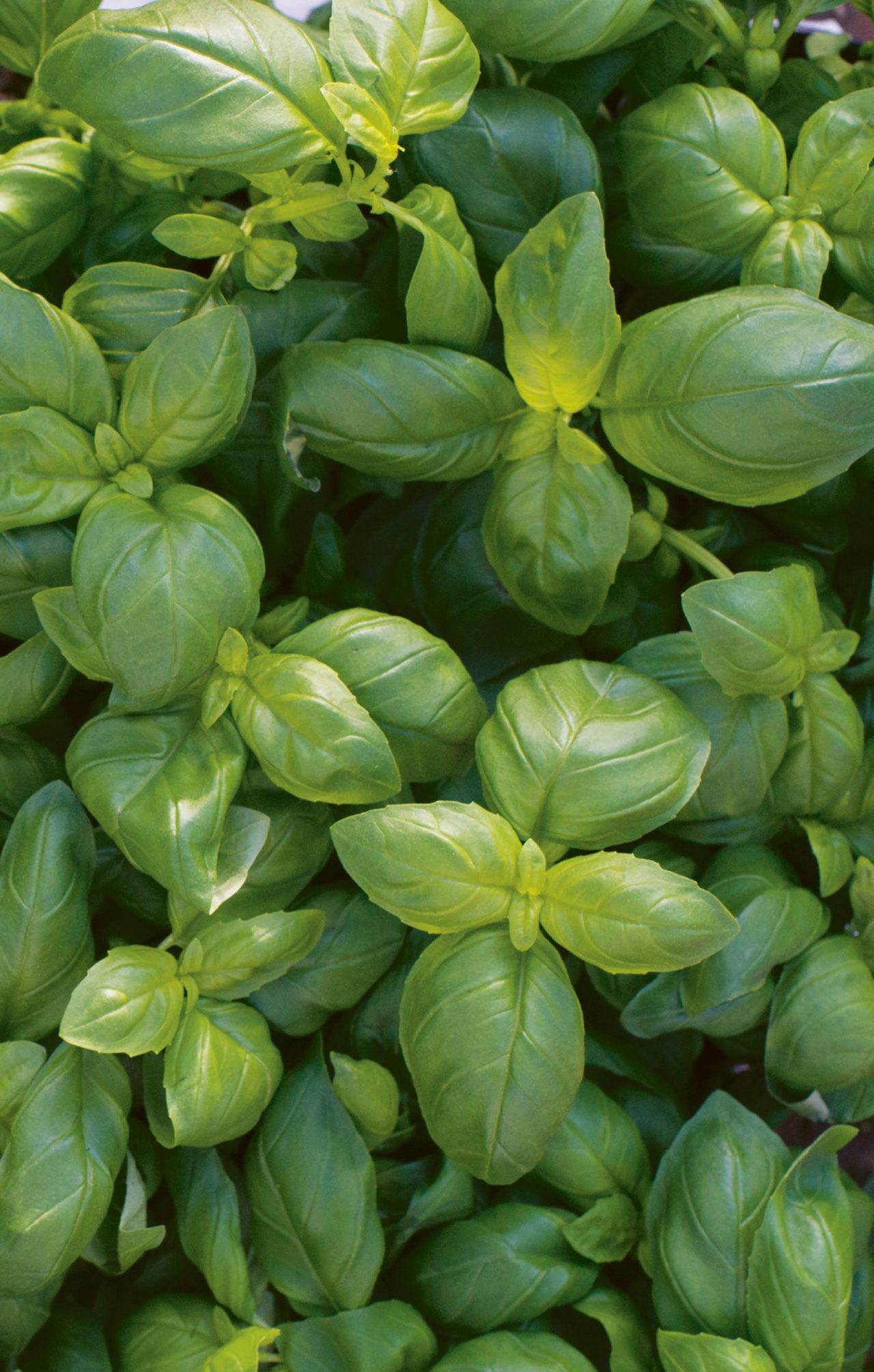An avid reader of all things gardening, a myriad of books pass by my desk. Most prove to be excellent, but quite a few seem to be simply churned out for the sake of it. Mark Diacono’s books though, are always the notable exception.
Diacono’s books are playfully written, humorous, ever on trend, but always based on honest ideas, born out of his life and his way of living. Grounded, in tune with nature and expose his love of plants. As you glean through this beautiful oeuvre, you can just see him sitting on his steps, surrounded by herbs, gleefully collecting and infusing precious scented samples for that delicious cocktail, hearty stew, or humble biscuit.
Herbs/a cook’s companion is a joy. Diacono’s unique balance of warm, endlessly amusing, lyrical meditations on his never-ending love for enhancing food, alongside a myriad of tried-and-tested recipes, continues unabated throughout his new book. Rich with personal stories and experiences, his book highlights the rhythms of a life spent in his garden and kitchen. It’s simply charming, and will resonate with chefs and gardeners alike.
What more can I say? The man likes food. He likes growing it. He likes to write about it, and he’s very good at all three. This book, just like his previous compendiums, is an asset to any kitchen, bookshelf or coffee table. Beautifully presented, photographed and written, this book is bound to be (yet another) classic and I for one, am delighted to have a copy.
Lovage is a beast. Take a strimmer to it and it returns like Monty Python’s ailing knight: ‘Tis but a scratch!’
Mark Diacono, Herbs/a cook’s companion
Once through the ‘horti’ section, which outlines the good man’s personal selection of favourite herbs, you can start cooking. He runs through the various ingenious ways to preserve your newly grown stock of herbs; making herb oils, drying herbs, vinegars, and syrups. After which, he shows you how to cook with them, by means of a tantalising array of 70-odd recipes, helping you make the most of your new found herb knowledge.
Recipes range from the –Why didn’t I think of that?, beautifully simple; ‘Lancashire Lovage’ and ‘chive flower vinegar’, to the more cheffy, main courses, puds and drinks. Don’t forget the drinks. The man is famous for his tipples. I can attest to seeing many fatigued, green-fingered newshounds sprinting for a just a whiff of his latest cocktails at press events. Thanks to him, we have a steady supply of flavoured sugar syrups in the fridge, just awaiting that urgent cocktail emergency.
Diacono does his homework. His recipes have been properly tried & tested, which you can either follow to the letter or apply the ‘notch-on-the-bedstead’ approach to suit what you have in your fridge/garden and/or personal preference. Personally, it’s the small details that I find most inspiring. We all make a vegetable soup, but why not add that spoonful of herby pistou to truly make it special? Make the most of your salad dressings, by replacing regular olive oil with one infused with tarragon & parsley. Don’t drizzle just vinegar on that salad, rather opt for the exquisite chive flower vinegar…
All relatively small changes, but with a big flavour impact.
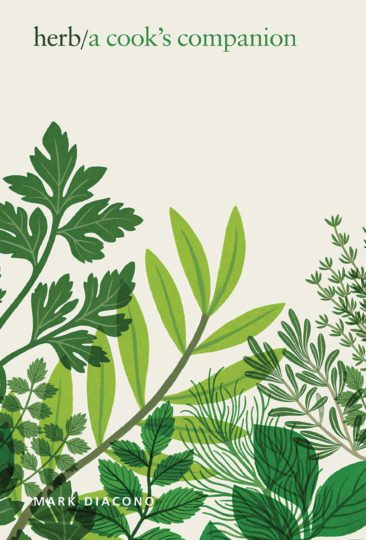
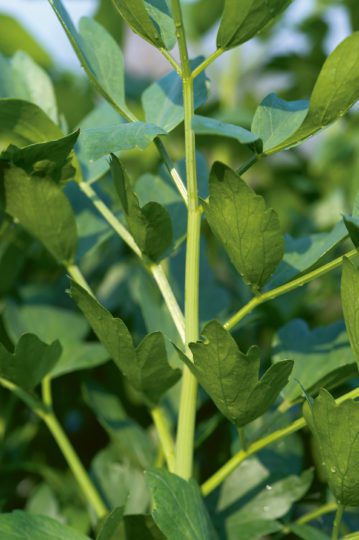
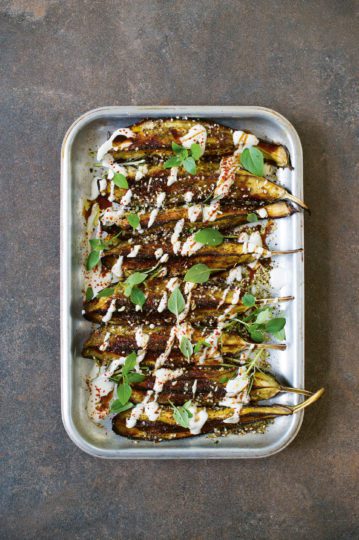
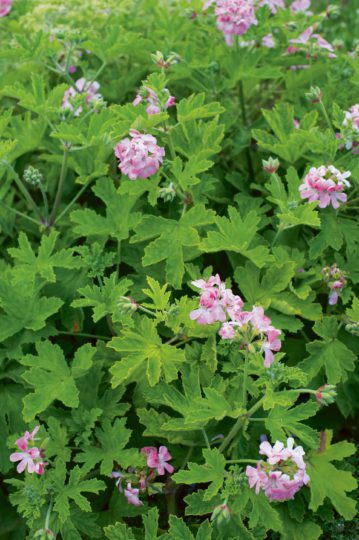
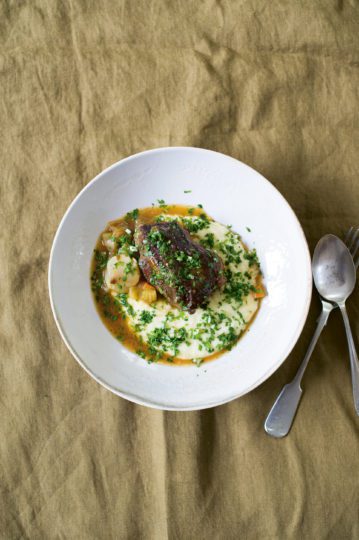
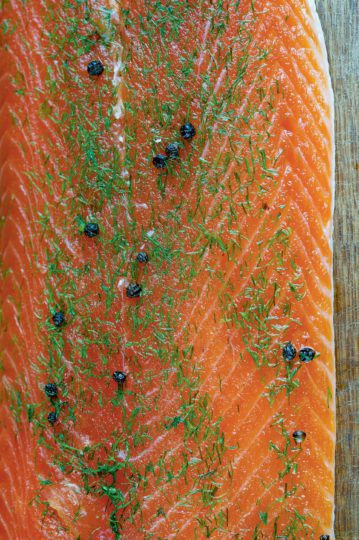
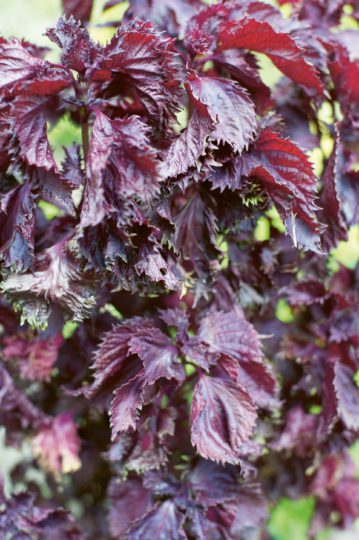

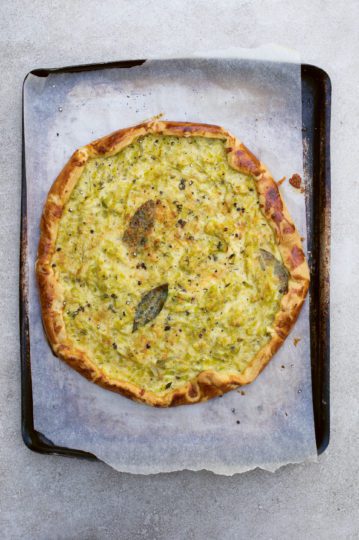

Herbs are a marvel, yet we sadly rarely venture ‘beyond our herb safety zones’; parsley and chives. Diacono’s stirring writing, may just be the ingredient needed for us all to open that larder door a little further, to include novelties such as lovage, sweet cicely, salad burnet and ginger rosemary.
Remember, herbs don’t just make your tastebuds sing, they have substantial health benefits too. Packed to the rafters with antioxidant phytonutrients, just a pinch of dried or fresh thyme can quadruple the level of antioxidants of any meal. Thyme for example, is an excellent source of vitamin C, vitamin A, fiber, riboflavin, iron, copper, and manganese, calcium and manganese, B6, folate, phosphorus, potassium, and zinc. Potent little antioxidant powerhouse therefore, which not only adds flavour but has 10 times the antioxidant power of nuts and seeds.
I grew epazote for the first time this year, and can highly recommend it to you if you dislike everything about yourself and take no joy from food. Picked fresh and at its perfect peak from the plant, it’s a disgrace. you may as well suck your dog’s bed. Dried , it is an entirely different entity – bitter, pungent and oddly refreshing, all in a good way.
MARK DIACONO, HERBS/A COOK’S COMPANION
Herb/a cook’s companion by Mark Diacono (Quadrille £26) is available in all the usual places. As he has generously done with all previous books, Mark is keen to share his skills with all regardless of income, so the book is available on his website at four prices: overpay for those who can afford to pay a little more, below full price for those who can, cost price for those on low income, and free to charities, other organisations and individuals less able to pay.
I leave you with a much favoured line from his book. In the section on starting out with herbs, he goes through the various options from sowing, dividing, cuttings and/or buying herbs. On the latter, he quite rightly recommends going to specialists, of which there are many in this country. ‘Don’t buy plants where you buy light bulbs‘, he attests.
Quite right Mr D. Quite right.
